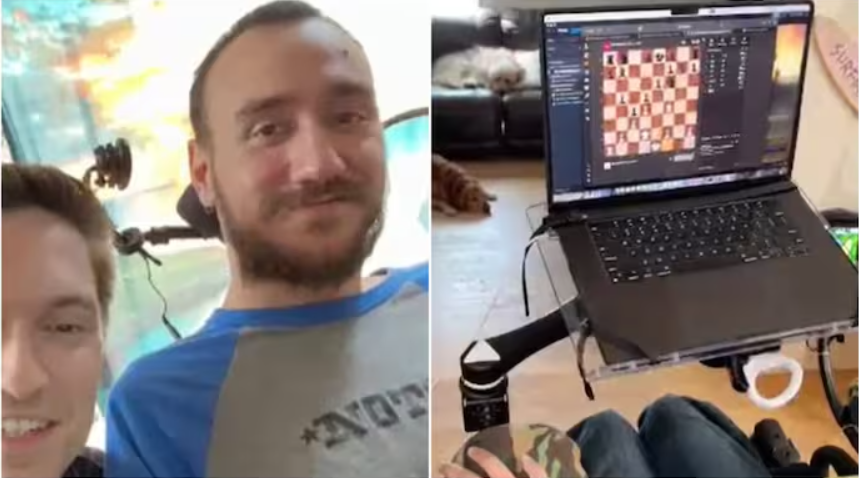Elon Musk’s brain-chip venture, Neuralink, showcased its inaugural patient on Wednesday, demonstrating the remarkable feat of controlling online chess using the power of the mind.
In a live-streamed event, Noland Arbaugh, a 29-year-old individual who had lost mobility below his shoulders due to a diving accident, showcased his ability to play chess on his laptop, manipulating the cursor solely through the Neuralink device.
The implant’s primary objective is to empower individuals to navigate computer interfaces using their thoughts alone.
Arbaugh, who underwent the implant procedure in January, had previously exhibited his capability to control a computer mouse through neural signals, as revealed by Musk in a prior announcement.
Reflecting on his experience, Arbaugh expressed gratitude, stating, “The surgery was super easy,” emphasizing his swift recovery post-implantation.
He further remarked on the profound impact the technology had on his life, particularly noting the joy of reengaging with activities like playing Civilization VI for hours on end.
However, Arbaugh acknowledged the technology’s imperfections, highlighting ongoing challenges encountered during his interaction with it.
“I don’t want people to think that this is the end of the journey,” he noted, emphasizing the need for further refinement.
Offering expert insight, Kip Ludwig, a former program director at the U.S.
National Institutes of Health, tempered expectations, stating that while the demonstration was promising, it didn’t constitute a groundbreaking advancement.
He stressed the importance of continued learning and collaboration between Neuralink and patients to optimize control capabilities.
Despite the cautious optimism, Ludwig commended the achievement as a significant milestone, particularly for individuals like Arbaugh who gain newfound independence through interfacing with technology in unprecedented ways.
Notably, concerns have been raised regarding Neuralink’s regulatory compliance following reports of FDA inspectors identifying issues with record-keeping and quality controls in animal experiments.
The company had yet to address these concerns at the time of the report.
Through Neuralink’s breakthrough in mind-controlled chess play, the future of neurotechnology holds immense promise, offering hope for enhanced accessibility and autonomy for individuals with physical disabilities.

